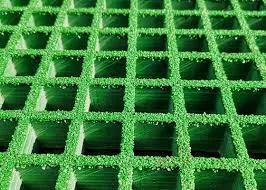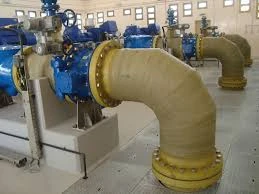
-
 Afrikaans
Afrikaans -
 Albanian
Albanian -
 Amharic
Amharic -
 Arabic
Arabic -
 Armenian
Armenian -
 Azerbaijani
Azerbaijani -
 Basque
Basque -
 Belarusian
Belarusian -
 Bengali
Bengali -
 Bosnian
Bosnian -
 Bulgarian
Bulgarian -
 Catalan
Catalan -
 Cebuano
Cebuano -
 China
China -
 China (Taiwan)
China (Taiwan) -
 Corsican
Corsican -
 Croatian
Croatian -
 Czech
Czech -
 Danish
Danish -
 Dutch
Dutch -
 English
English -
 Esperanto
Esperanto -
 Estonian
Estonian -
 Finnish
Finnish -
 French
French -
 Frisian
Frisian -
 Galician
Galician -
 Georgian
Georgian -
 German
German -
 Greek
Greek -
 Gujarati
Gujarati -
 Haitian Creole
Haitian Creole -
 hausa
hausa -
 hawaiian
hawaiian -
 Hebrew
Hebrew -
 Hindi
Hindi -
 Miao
Miao -
 Hungarian
Hungarian -
 Icelandic
Icelandic -
 igbo
igbo -
 Indonesian
Indonesian -
 irish
irish -
 Italian
Italian -
 Japanese
Japanese -
 Javanese
Javanese -
 Kannada
Kannada -
 kazakh
kazakh -
 Khmer
Khmer -
 Rwandese
Rwandese -
 Korean
Korean -
 Kurdish
Kurdish -
 Kyrgyz
Kyrgyz -
 Lao
Lao -
 Latin
Latin -
 Latvian
Latvian -
 Lithuanian
Lithuanian -
 Luxembourgish
Luxembourgish -
 Macedonian
Macedonian -
 Malgashi
Malgashi -
 Malay
Malay -
 Malayalam
Malayalam -
 Maltese
Maltese -
 Maori
Maori -
 Marathi
Marathi -
 Mongolian
Mongolian -
 Myanmar
Myanmar -
 Nepali
Nepali -
 Norwegian
Norwegian -
 Norwegian
Norwegian -
 Occitan
Occitan -
 Pashto
Pashto -
 Persian
Persian -
 Polish
Polish -
 Portuguese
Portuguese -
 Punjabi
Punjabi -
 Romanian
Romanian -
 Russian
Russian -
 Samoan
Samoan -
 Scottish Gaelic
Scottish Gaelic -
 Serbian
Serbian -
 Sesotho
Sesotho -
 Shona
Shona -
 Sindhi
Sindhi -
 Sinhala
Sinhala -
 Slovak
Slovak -
 Slovenian
Slovenian -
 Somali
Somali -
 Spanish
Spanish -
 Sundanese
Sundanese -
 Swahili
Swahili -
 Swedish
Swedish -
 Tagalog
Tagalog -
 Tajik
Tajik -
 Tamil
Tamil -
 Tatar
Tatar -
 Telugu
Telugu -
 Thai
Thai -
 Turkish
Turkish -
 Turkmen
Turkmen -
 Ukrainian
Ukrainian -
 Urdu
Urdu -
 Uighur
Uighur -
 Uzbek
Uzbek -
 Vietnamese
Vietnamese -
 Welsh
Welsh -
 Bantu
Bantu -
 Yiddish
Yiddish -
 Yoruba
Yoruba -
 Zulu
Zulu
Jan . 20, 2025 00:57
Back to list
fiberglass water storage tanks
Investing in fiberglass water storage tanks can be a game-changer for businesses and households looking to optimize their water management system. Drawing from years of expertise in material sciences and water management solutions, fiberglass tanks represent an advanced choice due to their durability, adaptability, and cost-efficiency.
From an engineering perspective, fiberglass water storage tanks are designed in line with various regulatory standards, often surpassing the minimum requirements for safety and performance. This compliance with international standards not only provides peace of mind but also emphasizes the commitment to environmental stewardship. By selecting fiberglass, you are opting for a solution aligned with sustainable practices, reducing your ecological footprint while meeting your operational needs. The authority of fiberglass tanks extends into diverse applications, demonstrating their suitability for both industrial and residential use. In regions facing water scarcity or irregular supply, having a reliable water storage system is invaluable. Fiberglass tanks provide that assurance, offering robust storage solutions for rainwater harvesting, emergency water reserves, and regular municipal use. This adaptability cements their status as an authoritative choice in the water storage industry. In terms of trustworthiness, fiberglass tanks have been subject to extensive testing and real-world validation. Users from diverse sectors — from agriculture to chemical processing — have documented the reliability of fiberglass tanks in daily operations. These verified experiences build confidence, showcasing fiberglass as a dependable solution that has consistently met and exceeded expectations over years of varied use. In conclusion, fiberglass water storage tanks present an optimal blend of economy, durability, and adaptability. By embracing this innovative technology, users benefit from lower long-term costs, robust protection against environmental challenges, and enhanced water safety. Furthermore, choosing fiberglass exemplifies a commitment to utilizing advanced materials tailored for 21st-century challenges, reinforcing a forward-thinking approach to water conservation and management. As water remains a critical resource, ensuring its safe storage with fiberglass tanks is not just a choice, but a necessity for modern efficiency and sustainability.


From an engineering perspective, fiberglass water storage tanks are designed in line with various regulatory standards, often surpassing the minimum requirements for safety and performance. This compliance with international standards not only provides peace of mind but also emphasizes the commitment to environmental stewardship. By selecting fiberglass, you are opting for a solution aligned with sustainable practices, reducing your ecological footprint while meeting your operational needs. The authority of fiberglass tanks extends into diverse applications, demonstrating their suitability for both industrial and residential use. In regions facing water scarcity or irregular supply, having a reliable water storage system is invaluable. Fiberglass tanks provide that assurance, offering robust storage solutions for rainwater harvesting, emergency water reserves, and regular municipal use. This adaptability cements their status as an authoritative choice in the water storage industry. In terms of trustworthiness, fiberglass tanks have been subject to extensive testing and real-world validation. Users from diverse sectors — from agriculture to chemical processing — have documented the reliability of fiberglass tanks in daily operations. These verified experiences build confidence, showcasing fiberglass as a dependable solution that has consistently met and exceeded expectations over years of varied use. In conclusion, fiberglass water storage tanks present an optimal blend of economy, durability, and adaptability. By embracing this innovative technology, users benefit from lower long-term costs, robust protection against environmental challenges, and enhanced water safety. Furthermore, choosing fiberglass exemplifies a commitment to utilizing advanced materials tailored for 21st-century challenges, reinforcing a forward-thinking approach to water conservation and management. As water remains a critical resource, ensuring its safe storage with fiberglass tanks is not just a choice, but a necessity for modern efficiency and sustainability.
Next:
Related Products
Latest news
-
Exploring the Benefits of Top Hammer Drifter Rods for Enhanced Drilling PerformanceNewsJun.10,2025
-
High-Precision Fiberglass Winding Machine for GRP/FRP Pipe Production – Reliable & Efficient SolutionsNewsJun.10,2025
-
FRP Pipes & Fittings for Shipbuilding - Corrosion-Resistant & LightweightNewsJun.09,2025
-
Premium FRP Flooring Solutions Durable & Slip-ResistantNewsJun.09,2025
-
Premium Fiberglass Rectangular Tanks Durable & Lightweight SolutionNewsJun.09,2025
-
Tapered Drill String Design Guide Durable Performance & UsesNewsJun.09,2025









